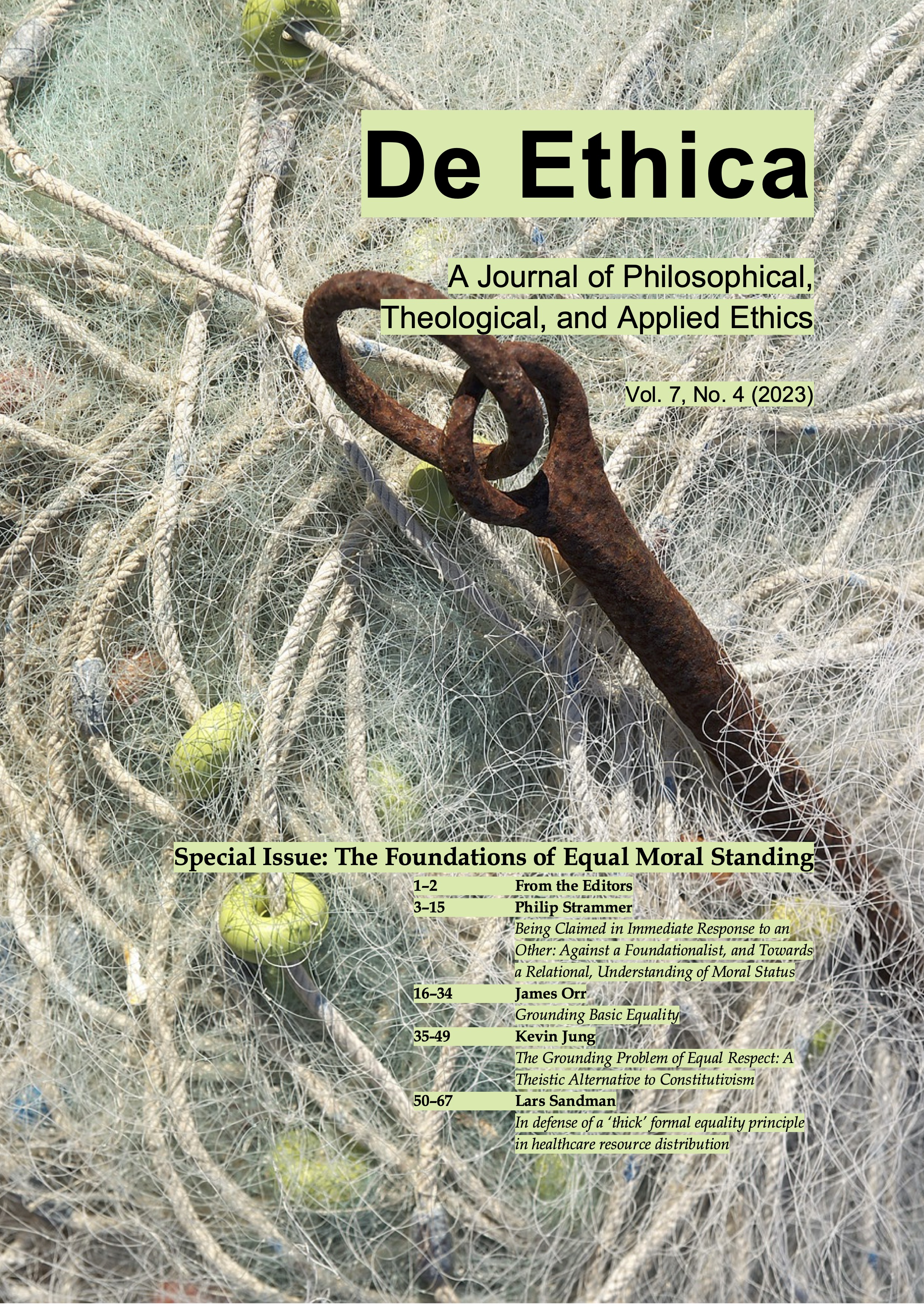Being Claimed in Immediate Response to an Other
Against a Foundationalist, and Towards a Relational, Understanding of Moral Status
DOI:
https://doi.org/10.3384/de-ethica.2001-8819.23743Keywords:
Moral Status, Moral Responsiveness, Moral Phenomenology, Fact/Value Distinction, Moral Properties, Ethical EncounterAbstract
In this essay, I propose a phenomenological alternative to the established candidates of what grounds moral status, namely the experience of being claimed in immediate response to an Other. Drawing from late-Wittgensteinian moral philosophy, I develop this alternative in critical juxtaposition to theories that aim to derive moral status from values grounded in independently accountable empirical properties. Against such theories, I expound how meaningful talk of moral status must instead be understood to be rooted in the individuals’ morally charged immediate responsiveness to Others, a responsiveness that preconditions the very possibility of separating value and fact. If my analysis is sound, then the empirical property or set of properties that is commonly taken to qualify as a candidate for a ground of moral status in fact presupposes a phenomenological dimension of ‘ethical encounter’. The recognition of this deeper phenomenological level would, while not disposing with the notion of moral status, transform its meaning and, thus, how much of the philosophical debate on moral status is conducted.
Downloads
Published
How to Cite
Issue
Section
License
Copyright (c) 2023 Philip Strammer

This work is licensed under a Creative Commons Attribution 4.0 International License.

